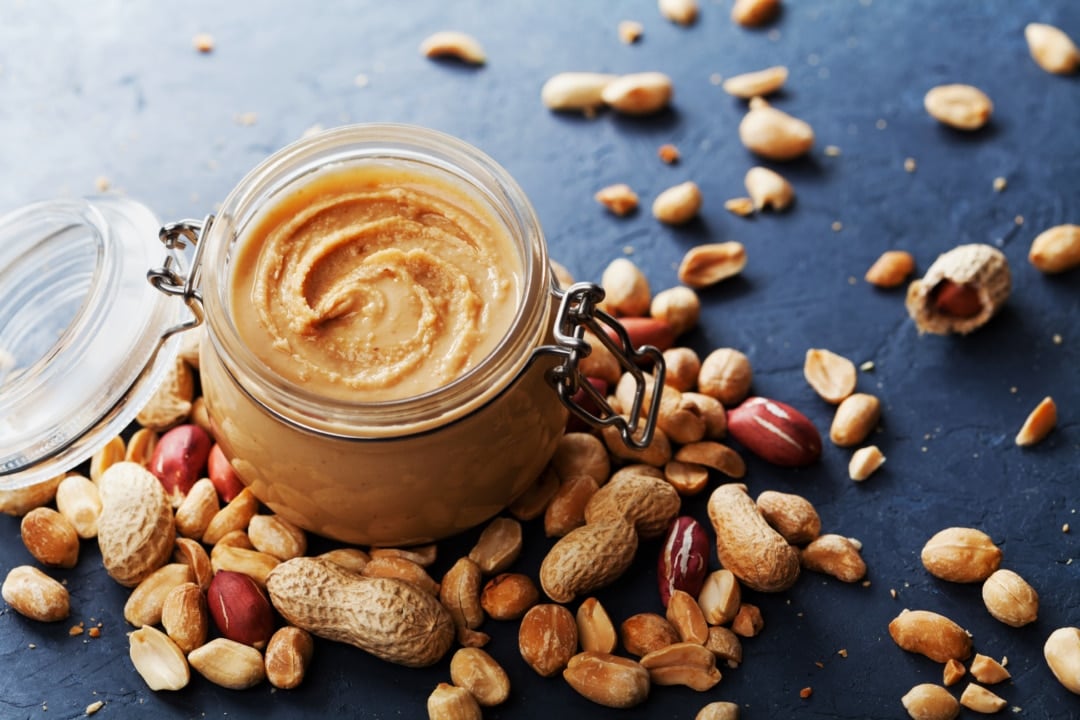5 Health Benefits of Eggs + 5 Tips and Recipes

Eggs are a beloved breakfast staple for people all over the world. They’re delicious, affordable, and easy to cook, and the nutritional benefits of eating eggs are just as plenty as the ways you can enjoy them. Here, we’ll explore eggs benefits and the healthiest methods of preparing eggs.
Whether they’re scrambled and enjoyed with a piece of toast or boiled and paired with ramen noodles, eggs have always had a place in our plates and hearts.
Although we may never know if the chicken or the egg came first, we have scientific evidence to show the tremendous health benefits that eating eggs brings. In this guide, we’ll discover fantastic facts about eggs, their health benefits, potential risks, and new ways to prepare them.
Interesting Facts about Eggs

Interesting Facts about Eggs
As one of the most popular foods in the world, there are still a lot of lesser-known facts you can learn about eggs.
For instance, the average American eats a staggering 19 pounds of eggs every year, and Iowa is the top egg-producing state in the country.
It’s also worth mentioning that the heaviest chicken egg in the world was laid in New Jersey in 1956. According to Guinness World Records, it weighed an astonishing 454 grams.
Additionally, the quickest omelet maker in the world created 427 two-egg omelets in just 30 minutes.
A useful fact to remember is that you can test an egg’s freshness by putting it in a cup of water. Old eggs with large air pockets float, while eggs that remain at the bottom are fresh and usually safe to eat.
Different Egg Types
Did you know that there’s more than one type of egg you can have for breakfast?
You’ll be surprised to find out that other edible eggs offer a unique taste and nutritional value. Have a look at these egg varieties and maybe try to include one in your next meal.
Quail Eggs

Quail Eggs
Quail eggs are around one-fourth of a chicken egg in size, with black or brown speckles on their cream-colored shells. They have a mild taste and are rich in vitamin B12 and vitamin D.
Their creaminess is perfect for pudding and other desserts, but you can use them for regular egg recipes, too.
Duck Eggs
If you’re looking for bigger and bolder-tasting eggs, try duck eggs. At twice the size of chicken eggs, their deep orange yolks are richer and smoother. They have lots of vitamin B complex compounds as well. They make vibrant yellow cakes and are great for creamy dishes like French toast.
Turkey Eggs

Turkey Eggs
Turkey eggs are slightly bigger than chicken eggs, and they taste nearly the same. You’ll likely find them in farms and local markets as they aren’t usually mass-produced.
These rare goodies are high in calcium and protein, but they do have more cholesterol than chicken eggs.
Goose Eggs

Goose Eggs
Imagine an egg that’s around three times the size of a chicken egg, with a larger yolk-to-white ratio and a higher dose of protein. Well, that’s a goose egg for you.
They’re best for scrambling and making a hearty sandwich. Their shells are tricky to crack, though, and eggs can be harder to find in stores.
Chicken Eggs
Chicken eggs are the most widely available and commonly consumed eggs on the market, and you’ll find these delicacies in anything from snacks and soups to pastries and desserts.
The choline content in chicken eggs supports brain development. They are rich and buttery in flavor, but taste can vary depending on the color and the hen’s breed and diet.
Nutritional Facts, Calories, and Sugar Amount of Eggs

Nutritional Facts, Calories, and Sugar Amount of Eggs
Despite their small and handy size, eggs are a powerhouse of nutrients and protein.
A large hard-boiled egg, which counts as one serving, has 72 calories, 6 grams of protein, 147 milligrams of choline, only 5 grams of fat, and less than 1 gram of sugars and carbohydrates.
Since eggs are a complete protein, they contain all the nine amino acids that are necessary for rebuilding your muscles and tissues.
They’re also an abundant source of potassium, which promotes nerve and cardiovascular health, and lutein, which improves your eye health.
That’s not all – eggs are nutritionally dense in vitamin D, vitamin A, calcium, phosphorus, riboflavin, and selenium. For all those nutrients, they’re easy on the waistline as well. If prepared the right way, eggs can be light on carbs, sugar, and saturated fat.
Health Benefits of Eating Eggs

Health Benefits of Eating Eggs
Whether you boil, poach, or bake your eggs, their benefits never fail to disappoint. They’re even called “superfoods” for that reason. Let’s explore the positive impact of egg consumption on the human body and see what it does for your eyes, brain, energy levels, and immunity:
Promotes Heart Health

Promotes Heart Health
Eggs are a source of High-Density Lipoprotein (HDL) cholesterol, which is considered “good cholesterol” because it helps maintain your body’s cholesterol levels as well as prevent strokes and heart disease.
The nutrients found in eggs, such as betaine and choline, also contribute to a healthy heart.
Betaine helps reduce heart attack risk and protects internal organs, while a higher intake of choline is associated with lower homocysteine levels, preventing the hardening of the arteries.
Supports Optimal Brain Function

Supports Optimal Brain Function
Aside from promoting heart health, choline is an important nutrient that supports optimal brain function.
It keeps your nervous system in good shape, elevates your mood, sharpens your memory, and prevents early brain dysfunction, including dementia.
Most people don’t get enough choline in their diet, and some aren’t even aware that it exists. Fortunately, eating eggs is a convenient way of boosting your choline levels.
Eggs also have vitamin D and Omega-3 fatty acids, which are vital for brain function.
Nurtures Healthy Eyes, Skin, and Bones

Nurtures Healthy Eyes, Skin, and Bones
Eating eggs can help preserve clear vision and promote eye health because they contain antioxidants called lutein and zeaxanthin. They even help prevent cataracts and worsening vision due to aging.
Meanwhile, the vitamin D content of eggs helps your body absorb calcium and maintain strong bones.
Eggs are also an eggcellent source of Selenium and Vitamin A, which nourishes your skin, supports wound healing, and stimulates new cell development.
Assists in Weight Loss

Assists in Weight Loss
Eggs are good news for your weight loss goals, too. Since they’re so high in protein, they have the ability to keep you fuller for longer periods of time, even when you take them in smaller portions.
This helps you to maintain steady weight loss over time.
High-protein foods like eggs can also speed up your body’s metabolism, helping you burn more calories. You might’ve noticed that a lot of dietary patterns include eggs in them, and now you have a better idea why.
Boosts Energy and Immunity

Boosts Energy and Immunity
For some people, the reason why they like eggs in the morning is because it provides them with enough energy to start the day right. This is because the protein in eggs promotes steady and sustained energy levels.
Vitamin D and carotenoids in eggs also boost the immune system, helping you bounce back from the common cold and flu.
Carotenoids are chemical compounds that have been observed to enhance immune cell function and lower the risk of various diseases.
Potential Risks of Eggs

Potential Risks of Eggs
Since eggs are nutritious, accessible, and affordable, many people eat them on a regular basis or even daily. However, you might have heard concerns about the cholesterol content of eggs and other health issues involved. So, what are the ways that eggs can cause us harm?
Food Poisoning

Food Poisoning
According to the Centers for Disease Control, around one in every 20,000 eggs is contaminated with Salmonella.
Salmonella is a type of bacteria that causes a food-borne illness with symptoms like fever, abdominal pain, diarrhea, vomiting, and headache.
This bacteria can exist within an uncracked, whole egg. To keep safe, eggs should be handled, refrigerated, and cooked correctly.
You should also regularly sanitize your hands and other items that come into contact with your raw eggs, like countertops and cutting boards.
Cholesterol and Heart Disease

Cholesterol and Heart Disease
Eggs contain saturated fat and cholesterol. Eating eggs alongside other high-cholesterol foods like fried foods and processed meats can increase your risk of heart disease.
However, the risk associated with egg consumption can vary from one person to another.
For instance, if you have a low-cholesterol diet, you don’t have to limit your egg intake as much as those with high-cholesterol diets.
Additionally, the increased risk of heart disease from egg consumption is most prevalent in overweight individuals or people with diabetes.
Risk of Diabetes

Risk of Diabetes
Diabetes is a chronic health condition that impacts how your body turns food into energy. This disease takes place when your blood glucose or blood sugar level is too high.
The fat and cholesterol content in eggs is also linked to an increased risk of diabetes, as shown in several studies among people who ate eggs daily.
Those who regularly consumed the most amount of eggs heightened their diabetes risk compared to those who ate the fewest.
Eggs in Pregnancy

Eggs in Pregnancy
Eggs are packed with essential nutrients, like vitamin B12, choline, and amino acids, which are vital to a baby’s growth and development.
They also contain protein, iron, and Vitamin D to maintain strong bones, boost immunity, and regulate blood sugar levels in pregnant women.
As long as they’re properly prepared through pasteurization and thorough cooking, eggs are safe to eat during pregnancy.
Note that the eggs must be fully cooked, which means you should avoid soft-boiled, poached, and sunny-side-up eggs as they have runny yolks.
It’s also best to steer clear of homemade foods that contain undercooked eggs, like mayonnaise, salad dressings, eggnog, ice cream, and raw cookie dough. When preparing eggs, ensure they’re fully done before eating, and always check for a firm yolk and egg white.
Can Dogs and Cats Have Raw Eggs?

Can Dogs and Cats Have Raw Eggs?
Raw eggs aren’t recommended for dogs and cats due to the risk of consuming dangerous bacteria, such as Salmonella and E. coli.
Both of these bacteria can cause your pet to get sick, resulting in symptoms like vomiting, diarrhea, fever, dehydration, and weight loss.
Feeding your pet raw eggs can also lead to biotin deficiency. Biotin is an essential vitamin that promotes healthy skin, fur, and nails in your pets, as well as a properly functioning metabolism and nervous system.
Egg whites contain avidin, a substance that prevents biotin absorption.
Fully cooked and unseasoned eggs can be consumed safely by dogs and cats as an occasional treat or dietary supplement. But, as with any human food, it’s best to talk to your vet before feeding your pet eggs, especially if your dog or cat has a medical condition.
Healthy Preparation Methods of Eggs

Healthy Preparation Methods of Eggs
Eggs are loaded with plenty of health-boosting and life-sustaining nutrients. But you’ll need the right recipes and cooking methods to make the most of them without compromising flavor. Here are several nutritious yet delicious ways to enjoy this staple food item:
Hard Boiled Eggs

Hard Boiled Eggs
There’s a reason why boiled eggs are a go-to breakfast or snack in many households.
Not only are they quick and simple to prepare, but they’re also extra healthy as you aren’t introducing any potentially unhealthy ingredients, like fat from cooking oil, to your meal.
You can hard boil your eggs by cooking them while they’re still in their shells in a pot of boiling water for around 7 to 10 minutes.
Note that a longer cooking time results in a firmer yolk. This cooking method is safer than leaving yolks uncooked, as there’s a lower risk of Salmonella.
Boiling allows you to receive the full extent of an egg’s nutritional benefits. A hard-boiled egg contains essential amino acids as well as vitamins B2, B5, and B12. Just make sure that you eat both the egg yolk and the egg white, as they’re equally good for you.
Omelet

Omelet
This popular French dish is a favorite among kids and adults alike. However, it doesn’t have the best reputation when it comes to being healthy.
It’s a good thing that omelets are infinitely customizable. All you need is a few tweaks and ingredient swaps for a nutritious boost.
You can make an omelet by beating eggs, pouring them into a pan, and cooking them over low heat until they’re solid.
Skip out on butter and saturated fat, and use olive oil to make your omelet instead. Add leafy greens, like kale, and sprinkle mushrooms for fiber and antioxidants.
Poached Eggs

Poached Eggs
Although it’s not the easiest nor the most common way of cooking eggs, poaching is one of the healthiest preparation methods.
You’re basically just heating up the eggs without diminishing any of the nutrients, leaving you with a high-protein, low-carb, and non-fat treat to indulge in.
A simple trick to making poached eggs is to simmer your water first, then use a whisk to get the water spinning and create a “whirlpool” effect.
This helps maintain the shape of the egg as you crack and drop it into the pan. Let it cook for around three minutes.
Egg Salad

Egg Salad
What better way to sneak more veggies into your meals than whipping up a delightful egg salad?
To ensure that your dish stays healthy, tone down the mayonnaise, which is a high-calorie condiment. Swap it out for protein-packed and calcium-rich Greek yogurt.
Mix four or more hard-boiled eggs with a quarter cup of Greek yogurt, lemon juice, dill, and your favorite seasoning.
Next, pile on the vegetables, like tomato, celery, and green onion. Serve your salad on a slice of bread, with lettuce wraps, or on a whole-wheat muffin, and enjoy.
Baked Eggs

Baked Eggs
You might associate the thought of baked eggs with cakes and immediately dismiss them as unhealthy.
Luckily, that’s not the case, as baking is a low-and-slow cooking method that makes nutrients easy to absorb. It all depends on what ingredients you select for your dish.
Pairing your eggs with lots of cream, milk, cheese, and pastry ingredients can result in a high-calorie meal.
For more nutrient value, try baking your eggs with eggplant, zucchini, peppers, garlic, and a small amount of olive oil instead. You can also opt to serve the veggies on the side.
Tips and Recipes for Eggs

Tips and Recipes for Eggs
In addition to being yummy and nourishing, eggs are also extremely versatile.
They can be served in many different ways and combined with other healthy foods to create unique dishes that will make your taste buds tingle.
If you find yourself wanting more than your typical plate of eggs, these egg-citing tips and creative recipes will help you scramble up your routine.
Drinking Egg White Only Pasteurized

Drinking Egg White Only Pasteurized
Egg whites are renowned for having high levels of muscle-building protein, so some people decide to drink them raw.
These include athletes, bodybuilders, and individuals who are practicing special diets, like paleo, keto, gluten-free, and whole30.
If you’re planning to drink raw egg whites as part of a healthy and balanced diet, ensure that you use pasteurized eggs instead of regular ones.
This is to reduce your risk of getting sick from egg whites that are contaminated with a bacteria called Salmonella.
You can also purchase liquid egg whites in cartons, as they’re beaten and pasteurized before packaging to minimize bacterial exposure and make them safe to consume. Include them in your favorite smoothie recipes, and add other nutritious foods like oats, fruits, and yogurt.
How Long It Takes to Boil Eggs

How Long It Takes to Boil Eggs
The amount of time you’ll need to boil an egg depends on your taste preferences, the size of the egg, and the water temperature. Generally, seven minutes of boiling will produce a soft and runny yolk with a firm egg white.
Meanwhile, a ten-minute cooking time results in eggs that are mostly cooked but have a slightly soft center. If you want a completely hard-boiled egg, around twelve to thirteen minutes will do.
Note that smaller eggs will cook quicker and that overcooking your egg will result in tough and rubbery whites and dry yolks.
How to Make Avocado Scrambled Eggs

How to Make Avocado Scrambled Eggs
If the fluffiness of scrambled eggs and the creaminess of fresh avocados seem like a good match to you, then you’ll love this easy recipe. Combine four eggs, three tbsp of milk, and ¼ tsp of salt in a bowl and whisk them together.
Then, melt one tbsp of butter in a nonstick skillet over medium heat and add the egg mixture to the skillet.
Halfway through cooking, add a medium-sized avocado chopped into small cubes and fold them into the eggs. Serve the dish on its own, or enjoy it with a crisp slice of toast.
How to Make a Classic Frittata

How to Make a Classic Frittata
Whether you’re having a busy weekday morning or a casual Sunday brunch, a frittata is a hearty and healthy dish you and your family can share.
Prepare:
- Six eggs
- ⅓ cup of heavy whipping cream
- One cup of grated mozzarella cheese
- ½ cup of goat cheese
- One cup of arugula
- ½ cup of cherry tomatoes cut in half
- ½ cup chopped bell pepper
- One tbsp of unsalted butter
- One tsp of fresh herbs
- And ½ tsp of salt
Begin by preheating your oven to 400°F and whisking your eggs, cream, and salt until you have a smooth mixture. Then, melt your butter and coat the sides of your baking dish with it. Spread the veggies at the bottom of the pan, pour in the egg mixture, and sprinkle cheese on top.
Bake your delicious frittata for 15 to 18 minutes until the edges are solid, and the top is light brown.
How to Make Healthy Breakfast Egg Tacos

How to Make Healthy Breakfast Egg Tacos
Kickstart your day with fresh, light, and flavorful tacos that’ll leave you feeling full and energized.
All you need are four corn tortillas, four eggs, a cup of canned black beans, a cup of sliced grape tomatoes, half an avocado, and ¼ cup of fresh cilantro leaves.
First, heat up the tortillas in a pan, and do the same for the black beans. Then, set them aside while you cook the eggs on medium heat.
Once cooked, place an egg in each tortilla, and add your desired amount of black beans, sliced avocado, and tomatoes. Top with cilantro and serve.
- Tomato Juice. Health Benefits + Tips.
- Asparagus. Benefits for Your Health.
- Mango. Benefits and Side Effects.
- Onions. Health Benefits and Tips for Use.
- Spinach. Benefits and Exctiting Facts.
- Peanuts. Health Benefits & Tips and Hacks.
- Dark Chocolate. Health Benefits and Tips.






